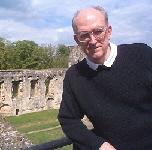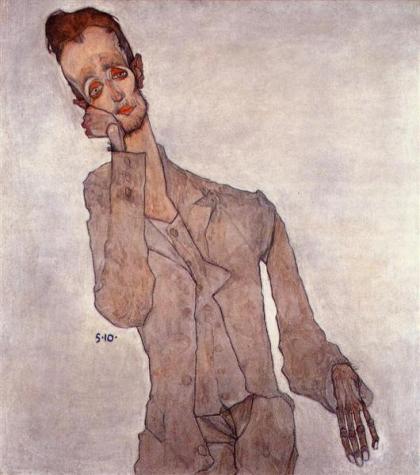Can You Trump That?
“By running on the promise to preserve Social Security and Medicare, Trump would be campaigning against the Republican establishment in the name of protecting the Republican base. The Republican base, after all, is an older demographic. Polls show that among this older demographic Medicare and Social Security are popular ideas……...Trump's candidacy, if it should come to pass, would drive a wedge between establishment and base.”
Donald Trump has teased the voting public before. He has flirted several times with the possibility of running for president. In 2012, he even rose to near the top of some early opinion polls. Each time, however, Trump backed away from an actual candidacy. Indeed, there are many who believe that these quadrennial presidential flirtations are nothing more than a marketing ploy. What better way for the ever-theatrical Trump to draw attention to his name? And since his name is his brand, success demands that it must always be in the public's mind.
But what if this time is different? What if Donald Trump surprises the experts and decides to run? There are some reasons to believe that he might be ready to do that. Just a few days ago, he said that he might soon announce a "big surprise." A couple of months ago, he announced the formation of a presidential exploratory committee and indicated a reluctance to renew the contract on his television show The Apprentice. And, furthermore, Trump has hired campaign staff -- in Iowa, in New Hampshire, and in South Carolina, three early caucus and primary states. Serious campaign staffers are people who depend on their reputations for their livelihood. Presumably, they would not enlist on a fool's errand.
So, will Trump seek the Republican nomination? And, more to the point, what are his odds of success?
Contrary to what many people think, I believe that Trump has a decent chance of winning the nomination should he decide to pursue it. Let's review the issues that Trump has hinted he would run on.
He has repeatedly indicated his strong support for preserving Social Security and Medicare. This would seem to be a no-brainer, of course, except that it flies in the face of Republican orthodoxy. Paul Ryan's infamous budget (the Orwellian "Path to Prosperity") has targeted those programs for years. The most recent iteration of this misbegotten budget would privatize Medicare and turn it into a voucher system by 2024. Seniors are a vulnerable demographic. They should not be made to navigate the intricacies of a voucher system.
By running on the promise to preserve Social Security and Medicare, Trump would be campaigning against the Republican establishment in the name of protecting the Republican base. The Republican base, after all, is an older demographic. Polls show that among this older demographic Medicare and Social Security are popular ideas. Indeed, the only reason the base has not rebelled against Paul Ryan and his ilk is cognitive dissonance. Older Republican voters by and large do not believe what is in the budget. Trump's candidacy, if it should come to pass, would drive a wedge between establishment and base.
Of course, Mike Huckabee is already trying out precisely this campaign. Huckabee, however, does not have the campaign resources to stir the Republican base from its complacent state of cognitive dissonance. To do that, you need to arouse people, and to arouse people, you need resources -- money, staff, advertising budgets. Donald Trump, should he run, would have these resources at his disposal. If he ran on Social Security and Medicare, hard and loud, and showed himself prepared to confront Republican orthodoxy, he might have a winning hand.
Trump has also shown himself opposed to the negotiation of additional international trade deals. Most recently, he has stated his opposition to the creation of the Trans-Pacific free trade zone. He argues that the agreement amounts to an attack on American manufacturing. By lowering tariffs, it would make foreign-made goods more attractive to American consumers at the expense of domestic jobs.
I part company with Donald Trump on this analysis. While I certainly agree that our international trade agreements have favored the interests of capital over labor, I don't believe that the ideal of international trade should be abandoned. I would much prefer to use trade agreements as a vehicle for writing into law protections for labor around the world.
But that is not what Donald Trump is proposing. He would scuttle the deal altogether. He sees it as a part of an ongoing narrative -- the hollowing out of the American heartland.
Again, Trump is positioning himself as radically opposed to the Republican establishment. Should he mount a campaign like this, furthermore, he runs the risk of playing with the dangerous fires of demagoguery. That said, opposition to free-trade deals is a position held by many in the Republican base. It is an issue that could carry the day in a fractured field. And, again, Trump has the resources to drive this case home.
I would not and could not vote for Donald Trump. For me, his dabbling with "birtherism" in 2012 simply went too far. Birtherism was always a conspiracy of the fringe. Trump was among those responsible for moving the mainstream of American politics a little closer to the lunatic fringe. He is not someone I would want to see occupying the Oval Office.
Still, if Trump is serious, if he is not just stroking his ego or promoting his brand name, he has formidable assets. If he showed himself willing to campaign forcefully on Social Security, Medicare, and free trade, he could make a competitive run for the Republican nomination. And in the free-for-all that 2016 promises to be, a "competitive campaign" may be all that is needed to snatch a nomination that is looking more and more like a rugby scrum.
For Charles J. Reid book on Amazon please click the picture below.
To follow what's new on Facts & Arts, please click here.
This article is brought to you by the author who owns the copyright to the text.
Should you want to support the author’s creative work you can use the PayPal “Donate” button below.
Your donation is a transaction between you and the author. The proceeds go directly to the author’s PayPal account in full less PayPal’s commission.
Facts & Arts neither receives information about you, nor of your donation, nor does Facts & Arts receive a commission.
Facts & Arts does not pay the author, nor takes paid by the author, for the posting of the author's material on Facts & Arts. Facts & Arts finances its operations by selling advertising space.



















